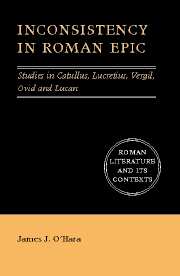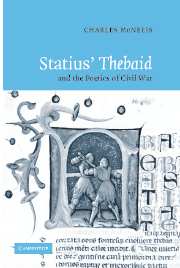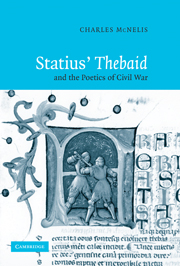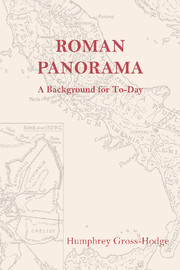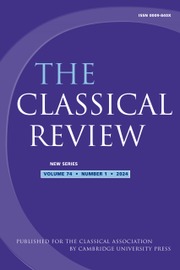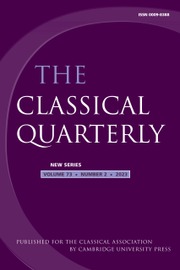Inconsistency in Roman Epic
How should we react as readers and as critics when two passages in a literary work contradict one another? Classicists once assumed that all inconsistencies in ancient texts needed to be amended, explained away, or lamented. Building on recent work on both Greek and Roman authors, this book explores the possibility of interpreting inconsistencies in Roman epic. After a chapter surveying Greek background material including Homer, tragedy, Plato and the Alexandrians, five chapters argue that comparative study of the literary use of inconsistencies can shed light on major problems in Catullus' Peleus and Thetis, Lucretius' De Rerum Natura, Vergil's Aeneid, Ovid's Metamorphoses, and Lucan's Bellum Civile. Not all inconsistencies can or should be interpreted thematically, but numerous details in these poems, and some ancient and modern theorists, suggest that we can be better readers if we consider how inconsistencies may be functioning in Greek and Roman texts.
- Considers the possible function of inconsistent passages in Roman epic poems
- Looks at Roman epic poems in the light of Greek poetic and critical tradition, and suggests that the use of inconsistencies became traditional in Roman epic
- Pulls together a great deal of recent work on Greek and Roman poetry within a brief compass, and with a fresh vantage point
Product details
April 2007Paperback
9780521646420
180 pages
196 × 130 × 13 mm
0.221kg
Available
Table of Contents
- Introduction
- 1. Greek versions
- 2. Catullus 64: variants and the virtues of heroes
- 3. Death, inconsistency and the Epicurean poet
- 4. Voices, variants and inconsistency in the Aeneid
- 5. Inconsistency and authority in Ovid's Metamorphoses
- 6. Postscript: Lucan's Bellum Civile and the inconsistent Roman epic.

